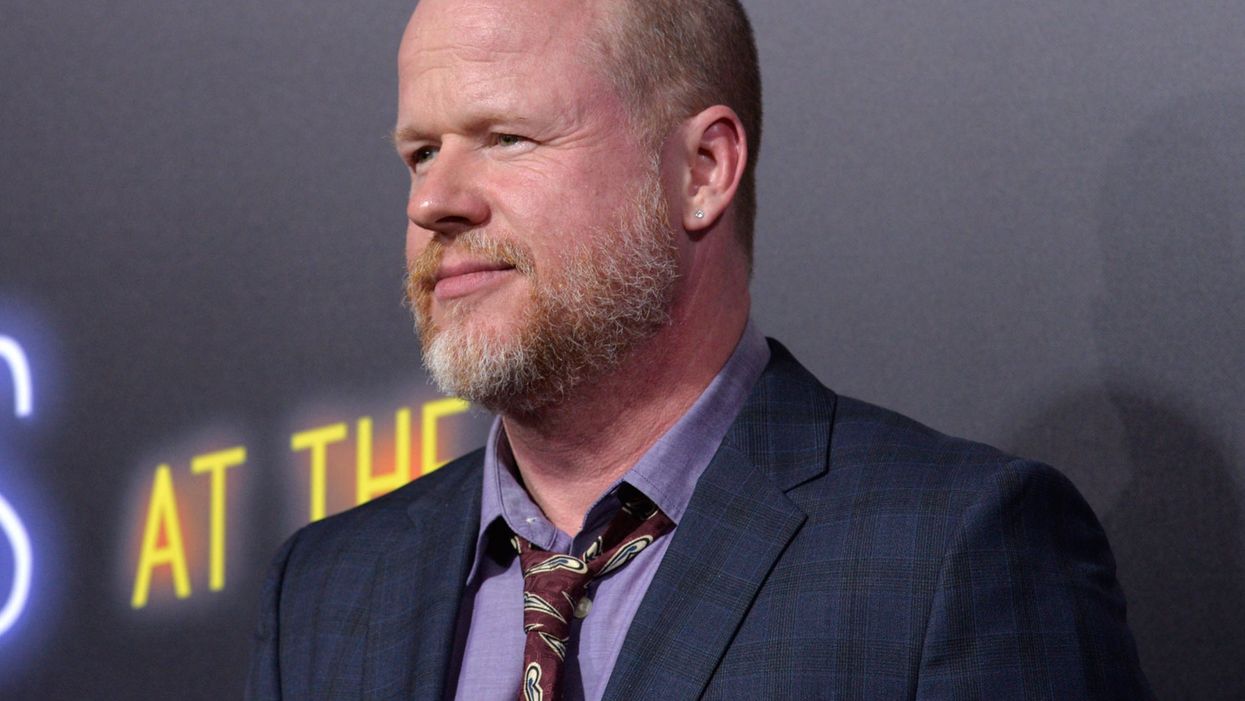News
Isobel van Hagen
Feb 11, 2021

Joss Whedon
Getty Images
The self-described “woke bae” Joss Whedon came back into the limelight on Wednesday after he was accused of "harassment" by Buffy the Vampire Slayer actor Charisma Carpenter.
The prominent director, known for creating Buffy, and directing Justice League and The Avengers, was accused of making "ongoing, passive-aggressive threats" to fire Carpenter throughout the filming on the supernatural drama.
Carpenter, who played Cordelia Chase in Buffy also said he called her "fat" while she was four months pregnant, adding he asked if she was "going to keep it" during a meeting – which she perceived a reference to her character and religion. She said she was later "unceremoniously fired" the following season.
Sarah Michelle Gellar, who played the lead character, and other former cast members have come out in support of their co-star after the actor's statement.
“While I am proud to have my name associated with Buffy Summers, I don’t want to be forever associated with the name Joss Whedon,” Gellar wrote in a statement on Instagram.
indy100 has attempted to contact Whedon for comments on these allegations, but we have yet to hear back.
Even though Whedon is embedded in our cultural memory has a feminist champion, the director has faced numerous controversies and has a history of allegations of harassment.
Here are some of the biggest controversies you may have missed.
Whedon's ex-wife Kai Cole accused him of infidelity
In 2017, Cole said Whedon’s identification as a feminist is an act. In 2017, she wrote an essay for The Wrap, addressing their divorce. At the time she said Whedon wrote her a letter near the end of their relationship, admitting to more than a decade’s worth of infidelities.
“As a guilty man I knew the only way to hide was to act as though I were righteous,” the letter said, according to Cole.
She said he also wrote of working on Buffy: “When I was running ‘Buffy,’ I was surrounded by beautiful, needy, aggressive young women. It felt like I had a disease, like something from a Greek myth. Suddenly I am a powerful producer and the world is laid out at my feet and I can’t touch it.”
A representative for Whedon said at the time that Cole’s “account included inaccuracies and misrepresentations,” but ultimately declined to comment “out of respect for his ex-wife.”
Actor Ray Fisher accused Whedon of 'unprofessional' behaviour
In the Carpenter statement on Wednesday, she included the hashtag #IStandWithRayFisher. This refers to actor Ray Fisher, who played Cyborg in Whedon’s 2017 Justice League.
Last summer, the actor tweeted alleging Whedon had engaged in, "gross, abusive, unprofessional, and completely unacceptable" behavior during the Justice League reshoots.
Fisher has since explained the lack of specific details regarding his accusation, saying, "I am still very much under contract and I am still very much under Non-Disclosure Agreement. So I've got to be very careful about what I say and how I say it, otherwise I can get sued into oblivion."
James Marsters accused Whedon of a disturbing response to Spike's popularity
Introduced as a supporting villain in season two of Buffy, the bleach blonde British vampire “Spike”, played by Marsters, would went on to become one of the show's most popular characters, as well as portraying the character on the show’s spinoff Angel.
In a recent episode of theInside of You with Michael Rosenbaum podcast, however, Marsters discussed Whedon's unsettling reaction to his character's surprise popularity, saying "I remember he backed me up against a wall one day and he was just like, ‘I don’t care how popular you are, kid, you’re dead. You hear me? Dead. Dead!'"
Whedon's representatives have been contacted for comment regarding the allegations posed by both Fisher and Marsters.
Whedon’s ‘sexist’ Wonder Woman script
Whedon’s initial script for Wonder Woman – which he wrote in 2006 and was leaked just before Patty Jenkins’s movie came out in 2017 – faced considerable backlash. One person called it a “viscerally insulting experience” with others calling it lazy, and relying on tired tropes.
“To say she is beautiful is almost to miss the point,” as Whedon originally described Diana – played in the Jenkins version by Gal Gadot. “She is elemental, as natural and wild as the luminous flora surrounding. Her dark hair waterfalls to her shoulders in soft arcs and curls. Her body is curvaceous, but taut as a drawn bow … She is barefoot.”
Other excerpts show other observations like: “Then she moves her back leg and turns, fluidly, a curve rippling up her body as she folds into a dance that is sensual, ethereal, and wickedly sexy.”
Whedon later said of the backlash of the male gaze-y description: “I don’t know which parts people didn’t like but I went and re-read the script after I heard there was a backlash. I think it’s great”.
Top 100
The Conversation (0)













